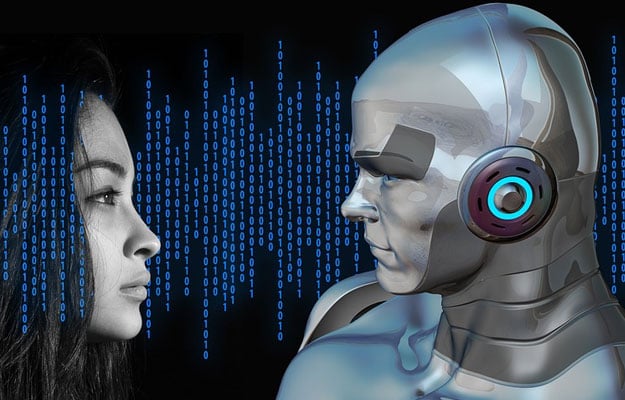Google AI Futurist Envisions Human Cyborg Uprising Within 20 Years

We often hear about the eventual robot uprising, especially when it comes to the advances being made in artificial intelligence. Bright minds like Tesla co-founder Elon Musk and Shark Tank star Mark Cuban warn of the potential downsides, hinting at a possible Skynet scenario playing out in real life. But if you ask Ray Kurzweil, and AI expert and futurist who works at Google, what his thoughts are on the subject, he will tell you that we have never had it so good than we do know. That, and we will be cyborgs within the next couple of decades. More on that in a moment.
During a question-and-answer session last week at the Council for Foreign Relations, Kurzweil talked about the world having less hunger and poverty than ever before. He also says that since the end of World War II only 72 years ago, humanity has been involved in endless skirmishes, but that the human species as a whole is enjoying the most peaceful period in the history of our civilization. The fear that people have, he says, is that AI threatens the progress we have collectively made, and could lead to our extinction.
Kurzweil does not buy into that train of thought. Instead, he points out that we are able to co-exist to the extent that we do because of the spread of democracy on a global scale, and that advances in communication have made that possible.
"You can count the number of democracies a century ago on the fingers of one hand, you can count the number of democracies two centuries ago on one finger. The world has become more peaceful. That doesn’t appear to be the case, because our information about what’s wrong with the world is getting exponentially better," Kurzweil said.
Looking ahead, Kurzweil believes we are on a fast-track path to becoming cyborgs of sorts, though not part metal and part flesh as seen in Hollywood films. Rather than looking like Robo-Cop, the human-robot hybrid will consist of having a chip implanted in the brain, in place of a smartphone in the hand.
When that happens, we will be able to think commands and queries—rather than asking Google to look up the weather in Hong Kong, we will be able to think it, and get an answer from a glowing rectangle with a speaker inside of it.
"Medical robots will go insider our brain and connect our neo-cortex to the smart cloud [by 2029]," Kurzweil says.
It is pretty difficult to imagine that being the case, but get this—of the hundreds of predictions Kurzweil has made in the made, he has been correct more than 90 percent of the time.

